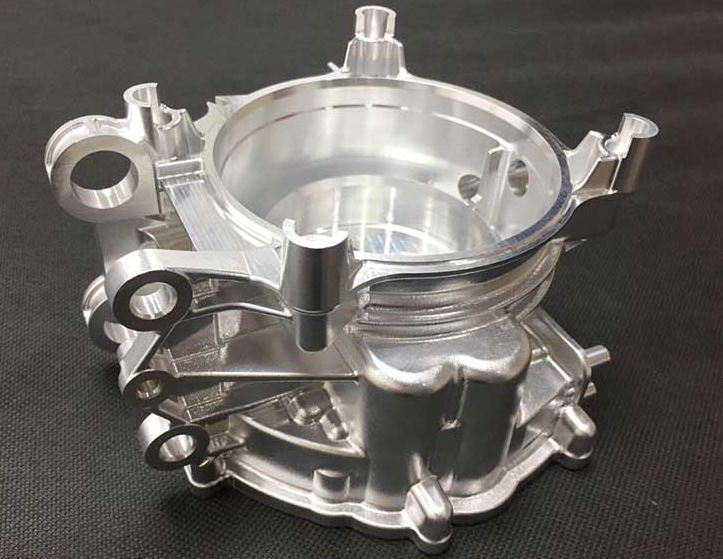Alcast Company for Beginners
Alcast Company for Beginners
Blog Article
Alcast Company Fundamentals Explained
Table of ContentsSome Known Details About Alcast Company The Ultimate Guide To Alcast CompanyA Biased View of Alcast CompanyThe Ultimate Guide To Alcast CompanyThe smart Trick of Alcast Company That Nobody is Talking AboutAlcast Company Fundamentals Explained
The subtle distinction hinges on the chemical web content. Chemical Contrast of Cast Aluminum Alloys Silicon advertises castability by decreasing the alloy's melting temperature and enhancing fluidity throughout casting. It plays a critical function in allowing complex mold and mildews to be filled up precisely. Additionally, silicon contributes to the alloy's stamina and use resistance, making it beneficial in applications where longevity is crucial, such as vehicle components and engine components.It also improves the machinability of the alloy, making it less complicated to process into completed items. This way, iron adds to the general workability of aluminum alloys. Copper enhances electric conductivity, making it helpful in electric applications. It likewise improves corrosion resistance and contributes to the alloy's general stamina.
Manganese adds to the toughness of light weight aluminum alloys and improves workability (aluminum foundry). It is frequently utilized in wrought light weight aluminum products like sheets, extrusions, and profiles. The visibility of manganese help in the alloy's formability and resistance to cracking throughout construction processes. Magnesium is a lightweight component that offers stamina and impact resistance to light weight aluminum alloys.
Not known Incorrect Statements About Alcast Company
It permits the manufacturing of light-weight elements with excellent mechanical homes. Zinc improves the castability of aluminum alloys and assists regulate the solidification procedure throughout casting. It boosts the alloy's strength and hardness. It is usually discovered in applications where elaborate shapes and fine details are essential, such as ornamental castings and particular vehicle parts.

The main thermal conductivity, tensile strength, yield stamina, and prolongation vary. Among the above alloys, A356 has the greatest thermal conductivity, and A380 and ADC12 have the least expensive.
10 Easy Facts About Alcast Company Explained

In precision spreading, 6063 is appropriate for applications where intricate geometries and premium surface finishes are paramount. Examples include telecommunication rooms, where the alloy's premium formability enables streamlined and visually pleasing layouts while maintaining structural honesty. Similarly, in the Illumination Solutions sector, precision-cast 6063 elements develop sophisticated and reliable illumination components that call for detailed forms and great thermal performance.
The A360 displays premium elongation, making it suitable for complicated and thin-walled components. In accuracy casting applications, A360 is fit for sectors such as Consumer Electronics, Telecommunication, and Power Devices.
Alcast Company Fundamentals Explained
Its special residential or commercial properties make A360 a useful choice for accuracy casting in these sectors, improving item resilience and top quality. Light weight aluminum alloy 380, or A380, is an extensively utilized spreading alloy with several distinctive qualities. It supplies excellent castability, making it an excellent selection for precision spreading. A380 shows great fluidity when molten, making certain intricate and in-depth mold and mildews are accurately reproduced.
In accuracy casting, aluminum 413 shines in the Customer Electronics and Power Tools sectors. This alloy's exceptional deterioration resistance makes it a superb selection for outside applications, making sure lasting, sturdy products in the discussed industries.
The 7-Minute Rule for Alcast Company
When you have decided that the light weight aluminum pass away casting process is appropriate for your project, an important following step is deciding on the most suitable alloy. The aluminum alloy you choose will substantially affect both the spreading process and the properties of the final item. Since of this, you need to make your choice meticulously and take an educated method.
Determining one of the most appropriate light weight aluminum alloy for your application will certainly mean evaluating a vast range of characteristics. These comparative alloy attributes adhere to the North American Pass Away Spreading Association's standards, and we have actually split them into two groups. The initial group addresses alloy qualities that influence the production process. The second covers features impacting the residential or commercial properties of the last product.
Alcast Company - Truths
The alloy you choose for die spreading directly impacts several aspects of the spreading procedure, like exactly how very easy the alloy is to deal with and if it is susceptible to casting flaws. Warm splitting, have a peek at these guys also called solidification breaking, is a regular die casting flaw for aluminum alloys that can lead to interior or surface-level tears or cracks.
Specific light weight aluminum alloys are extra vulnerable to warm breaking than others, and your choice ought to consider this. It can damage both the cast and the die, so you need to look for alloys with high anti-soldering homes.
Rust resistance, which is currently a noteworthy quality of aluminum, can differ significantly from alloy to alloy and is a necessary characteristic to think about depending upon the ecological problems your product will certainly be revealed to (Aluminum Casting). Put on resistance is another home frequently sought in light weight aluminum items and can differentiate some alloys
Report this page